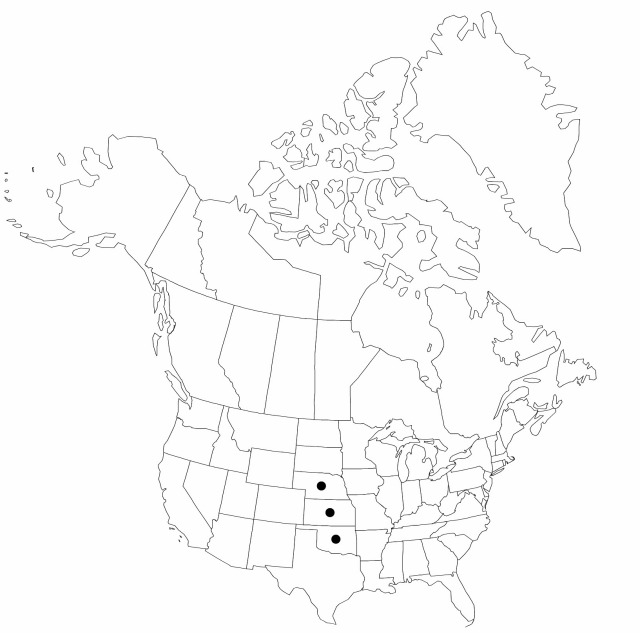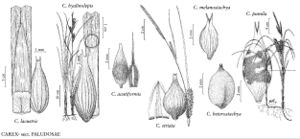Difference between revisions of "Carex melanostachya"
Sp. Pl. 4(1): 299. 1805.
FNA>Volume Importer |
FNA>Volume Importer |
(No difference)
| |
Revision as of 21:11, 16 December 2019
Plants colonial; rhizomes long-creeping. Culms central, slender, trigonous, 25–65 cm, ± scabrous-angled. Leaves: basal sheaths reddish purple, apex of inner band finely ciliate; ligules 0.7–1.9 mm; blades green, M-shaped, not septate-nodulose, 1.6–3.5(–4) mm wide, smooth abaxially, glabrous or, sometimes, lightly pubescent on apex of inner band of distal sheaths. Inflorescences 6–20 cm; rachis beyond proximal pistillate spikes sharp-angled, finely scabrous; proximal (1–)2(–3) spikes pistillate, not or barely overlapping, ascending; distal spikes erect; terminal 1–3 spikes staminate. Pistillate scales ovate, apex acute to acuminate-awned, glabrous, scabrous-ciliate apically. Perigynia ascending, ca. 14–18-veined near base, veins impressed, broadly ovoid, (4–)4.5–6.5 × 1.9–3.5 mm, dull, glabrous; beak 0.9–1.3 mm, bidentulate, teeth straight, 0.5–0.8 mm.
Phenology: Fruiting May–Jun.
Habitat: Ruderal in moist to wet roadside ditches and waste areas
Elevation: 100–300 m
Distribution

Kans., Nebr., Okla., Eurasia.
Discussion
Carex melanostachya is a rare introduction from Eurasia, first discovered in the flora in Kansas in 1964 (R. L. McGregor et al. 1972). A previous report, as C. nutans Host, from the Montreal area is based on sterile specimens suspected to be of hybrid origin (J. Cayouette and P. M. Catling 1992). A similar taxon, C. songorica subsp. gotoi (Ohwi) Popov [C. gotoi Ohwi] was found once as a waif in Yonkers, New York, in 1895. It differs from C. melanostachya in having perigynia that are shorter, only 3–4 mm, shiny, purplish, and have raised veins.
Selected References
None.
